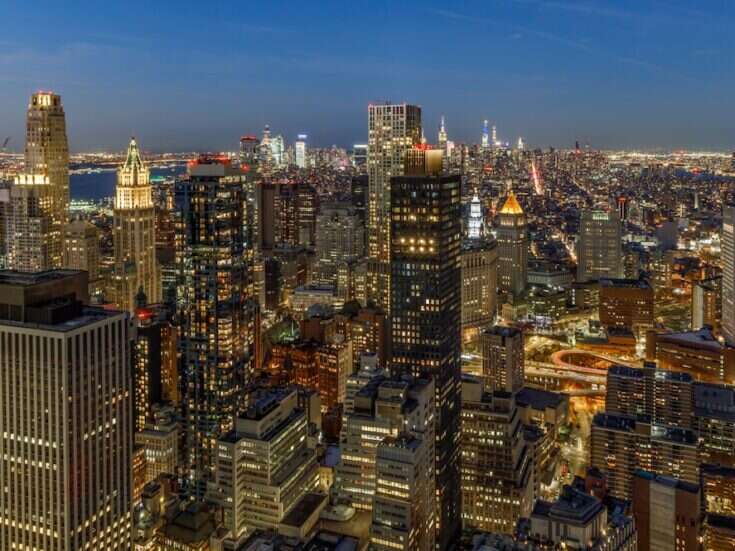As hotel brands work harder to improve sustainability across their portfolio, and consumers seek environmentally conscious stays, it can be hard to know what all the certificates and plaques really mean. The market is flooded with schemes and accreditations, but some are more rigorous and scientific than others. Elite Traveler spoke to EarthCheck, an environmental certification group that supports the travel and tourism industry in measuring and improving its sustainability. Its goal is to stand among sustainability schemes with a data-backed approach.
“We call it an ocean of labels,” says André Russ, EarthCheck’s vice president of sales. “There are a plethora of labels and logos that are out there, and we’re quite famous for saying: it was actually never about the logo, it was about what you do.”
[See also: Luxury Hotel Brands Driving EV Charging Forward]
EarthCheck requires members to take detailed records across a wealth of indicators including energy consumption, waste and water footprint, as well as social indicators focused on being an ethical workplace and community member. They can then benchmark themselves against similar businesses in the region, and pinpoint how best to improve.
And despite the devastating year faced by much of the tourism industry, Russ says many are more keen than ever to get to grips with their environmental footprint.
“From a tourism perspective, every destination management plan that was written pre-Covid, needs to be thrown out the door,” Russ says. “And so there’s this energy within the industry to really rethink. What do we mean in terms of success in tourism? And some are starting to say, well maybe it wasn’t about volume, maybe it was about yield, and what it brought to our community.”
There are 550 hotels, resorts and villas across 119 brands certified by EarthCheck worldwide, just over a third of which are luxury properties, including some of the world’s most well-known hotel companies.
Some of these have been in the game for a long time – just under a quarter (23%) have platinum EarthCheck certification, meaning they have been certified for over 10 years. One luxury location has been certified for over 15 years: the Vidanta Riviera Maya Resort group, which includes the exclusive Grand Luxxe members resort.
However, it’s clear that this is a growing movement. Almost two-thirds of luxury hotels with EarthCheck membership have had it for less than five years.
[See also: Earth Day: The Luxury Hotels and Resorts Going Green]
India and Mexico lead the world in their number of EarthCheck luxury properties. In India, the high number of platinum-certified luxury properties is spearheaded by Taj, which has certified 52 of its global luxury properties, 80% of which are in India.
Taj Hotels has the highest number of platinum-certified locations of any hotel in the EarthCheck scheme, and its efforts have had a significant impact. Between 2008 and 2021, its parent company the Indian Hotels Company Limited estimates it has saved over 1.2bn megajoules of energy and 232 million kg of CO2. It also claims to have saved 3bn liters of water and redirected 17,000 cubic meters of waste away from landfill across its portfolio.
Carmen Ng, director of sustainability at Langham Hospitality Group (LHG), has been using Earthcheck for its properties for over a decade. She says that the detailed records of their sustainability measurables have been crucial in helping LHG make tangible changes.
“One core value in terms of sustainability is walk the walk,” Ng says. “We don't like just talking about this and that, we need to make sure that we do the things right first. So that's why we use Earthcheck.”
[See also: Amazing Eco-Friendly Homes Around the World]
Between 2011 and 2019, Langham added almost 6.5 million sq ft in property, but still managed to cut its energy and carbon footprint per square foot by a third.
This was coupled with a significant increase in staff training, which Ng says is one of the strongest tools in implementing sustainable practices.
But Earthcheck isn’t just about being environmentally sustainable, it is about being a responsible member of the local area. This means investing in local tradition and culture, creating a good workplace, and giving back to the community. Ng says Langham sees this as a crucial role of any hotel.
“A hotel usually is a relatively large business, employing quite a significant number of staff compared to other businesses in town, so I think it can be quite influential.
“We can offer food, cover, a place to stay – a hotel can do a lot of things. So, we can always make use of our knowledge or resources to support the community.”
And crucially, Ng says hotels are seeing increased demand from consumers to be demonstrating their commitment to sustainability.
[See also: Inside the New Eco-Conscious Six Senses Botanique]
“Customers are smart, and up to date, and environmental consciousness will only become more important for new generations. I think it’s the only way to go.”
Ng finishes: “The hotels tell us these stories, that guests complain because we are still using plastic straws. And actually we have changed it to biodegradable straws, but it just feels like plastic! For the first time, guests are complaining that we aren’t environmental enough!”






